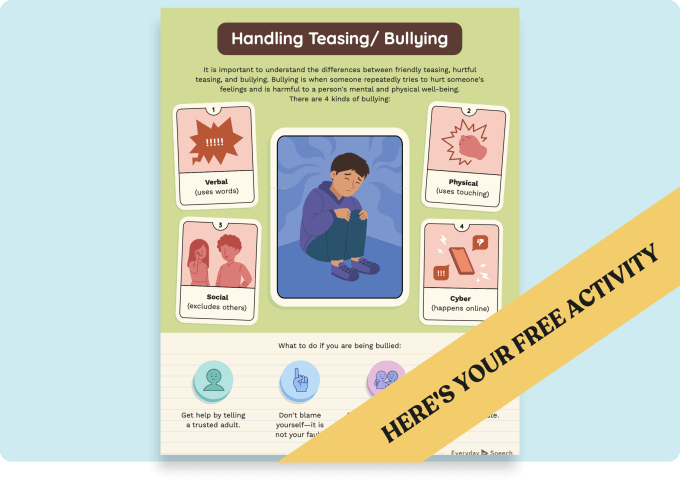Effective IEP Goals for Developing Communication Skills
Get free social skills materials
No-prep lessons on self-regulation, emotional recognition, conversation skills, and more.
Sign up hereDownload 50+ Example IEP Goals
Customizable library of strengths-based goals
Introduction
Effective communication skills are essential for students in special education, as they play a significant role in their learning and social interactions. Developing these skills can enhance their overall wellbeing and help them navigate various life situations with ease.
Understanding Communication Skills
Communication skills refer to the ability to express oneself effectively and appropriately in various social situations. For students, this includes understanding when to speak, when to listen, and how to convey thoughts and feelings in a respectful and considerate manner. Developing communication skills can lead to improved academic performance, better relationships with peers and teachers, and increased self-confidence.
The Role of Specialists
Various professionals can support the development of communication skills in students, including:
- Speech-Language Pathologists: They can help students improve their speech clarity, language comprehension, and expressive language abilities.
- Social Workers: They can provide guidance on appropriate social behaviors and help students develop strategies for effective communication in different settings.
- Psychologists: They can assist in identifying any underlying emotional or cognitive barriers that may be hindering a student’s communication abilities.
- School Counselors: They can work with students on building self-awareness and self-esteem, which can lead to more effective communication skills.
IEP Goals for Communication Skills
Here are some SMART IEP goals to help students develop better communication skills:
- Goal: The student will demonstrate respectful and appropriate communication by asking questions or making comments in a polite manner during class discussions.Strategies/Activities: Teach the student to use phrases like “Excuse me,” “May I ask…,” and “I have a question.” Role-play different scenarios and provide feedback on their performance.
- Goal: The student will improve their active listening skills by making eye contact and providing verbal or non-verbal feedback during conversations.Strategies/Activities: Teach the student various active listening techniques, such as nodding, summarizing, and asking follow-up questions. Practice these techniques in structured activities or group discussions.
- Goal: The student will develop the ability to recognize when a thought should be kept to themselves or shared with others by identifying potential consequences of their statements.Strategies/Activities: Use scenarios to discuss the potential impact of different statements. Teach the student to ask themselves, “Is this kind or helpful?” before speaking.
Implementing and Measuring Progress
When implementing these goals, it is essential to:
- Provide consistent support and feedback during practice activities.
- Collaborate with other specialists to address any underlying issues.
- Monitor the student’s progress through regular assessments and observations.
- Adjust the goals and strategies as needed based on the student’s progress.
Conclusion
Developing effective communication skills is crucial for students in special education. By implementing well-designed IEP goals and collaborating with specialists, educators can help students improve their communication abilities and succeed in various life situations. To explore more resources for developing communication skills, visit Everyday Speech Sample Materials.


